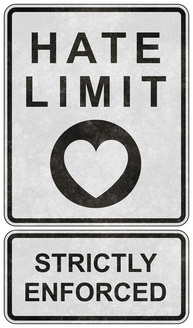The rule in English is that pronouns must agree with nouns in number and gender, so everyone is singular and gender neutral. While themselves is plural (a gender in and of itself in our language), the sentence should read: Everyone wants a slice of cake for him or her self. I know, it’s a tricky system. Yet, that same professor said something that, again, caused a confused silence to fall. “Language,” she said, “changes.” Go back to that test sentence. Maybe it’s not wrong. Using the traditional he/she/him/her/his/hers has been publicly out of touch since the mid-nineteenth century. An 1852 newspaper report called for the invention of a new pronoun “of the common gender,” and later an 1884 article printed in the New-York Commercial Advertiser proposed new pronouns ne, nis, nir and hiser. Both wanted to define a common gender, meaning that it could be applied to all peoples regardless of personal gender identification. It has been tried many times over the centuries, but the issue is that no one can can get a new pronoun to stick. This is because language has historically evolved in an organic way that is resistant to artificial influence. It happens when it happens, however it wants to happen, and we just have to live with it.
Hold on, this is not a reason to despair, as a gender neutral singular is making it’s way to the forefront. Remember the test sentence? Common language is rapidly incorporating ‘they’ as more than a plural, but as the stand in for the cumbersome and non-inclusive ‘he or she.’ It is not uncommon to read sentences where ‘them’ or ‘they’ stands as the singular neutral, for example: Sam went to the store and they picked up mayo. ‘Them/they/their’ is already a part of our language, it is gender neutral, and it is naturally progressing to take the place of the common pronoun. Naturally, people hate it. The hatred stems from two main sources. The first is the those that simply believe ‘they’ as a singular to be wrong grammatically, as in, it’s not in the textbooks so it’s not in the language. These are the same people who resisted the because-noun preposition (think: Because science!) and generally believe ‘slang’ is a curse word. It is the change that is feared in this situation. The other opposition comes from the social/religious angle, where the rejection of the he/she pronouns threatens the status quo, much like gay marriage and pro-choice is thought to. Resistance in this arena is entirely expected, as the modern push for a common pronoun stems largely from the explosion of acceptance for non-traditional gender identification. A ‘he’ can be biologically a ‘he’ but self-identify as something entirely different, ranging from the reverse “she” to identifiers like ze/zir, xe/xyr, co, or e/em. Yet for the moment, let’s go back to that fear of language evolution. Did you know that ‘you’ used to be entirely plural? In modern English, ‘you’ is both singular and plural, as well as genderless, meaning that it can be applied to a group: Are you guys going to the movies? Or to a single individual: Sam, will you go to the movies with me? Previously, in Middle English, which was spoken roughly between the 12th and 15th century (Middle Ages), to refer to a single individual one had to use ‘thou,’ ‘thee,’ or ‘thy.’ These have gone out of style, unless you’re channeling Shakespeare, absorbed over time into the then plural form ‘ye/you/your.’ Middle English is the basis of modern English, when Latin structures began to integrate into the more fluid English speech, and so much of our pronouns today developed directly out of it. That was what my grammar professor meant when she said that language changes. The rules matter, but only until they don’t. Think about the ‘i before e, except after c,’rule, which doesn’t apply for ‘eight,’ ‘glacier,’ ‘heir,’ ‘being,’ and over twenty other instances. As demonstrated, English is a flexible language. That’s what makes it so difficult to fully learn for non-native (and native) speakers and part of why it is currently the closest to being the “global language,” with 85% of the world's international organizations using English as their official language intransnational communication, according to David Crystal, author of English as a Global Language. It can adapt and be adapted as is needed in order for thousands of other verb-forms, sentence structures, and yes, pronouns. So why can’t it adapt to this not-so-new, but pointed need for a singular genderless pronoun? Even Merriam-Webster’s Collegiate Dictionary gives it credence, stating, “The use of they, their, them, and themselves as pronouns of indefinite gender and indefinite number is well established in speech and writing, even in literary and formal contexts.” There it is, for those still hung up on it not being “in the rules” or some such nonsense. The basis of language is to serve those speaking it. In our modern world, the human experience is varied and so, too, is our language. To hate on ‘they’ is to be blind to the creative beauty our language holds and insensitive to the changing social tides that drive it.
1 Comment
|
Archives
July 2024
Categories
All
|
|
Glassworks is a publication of Rowan University's Master of Arts in Writing 260 Victoria Street • Glassboro, New Jersey 08028 [email protected] |
All Content on this Site (c) 2024 Glassworks
|


 RSS Feed
RSS Feed
